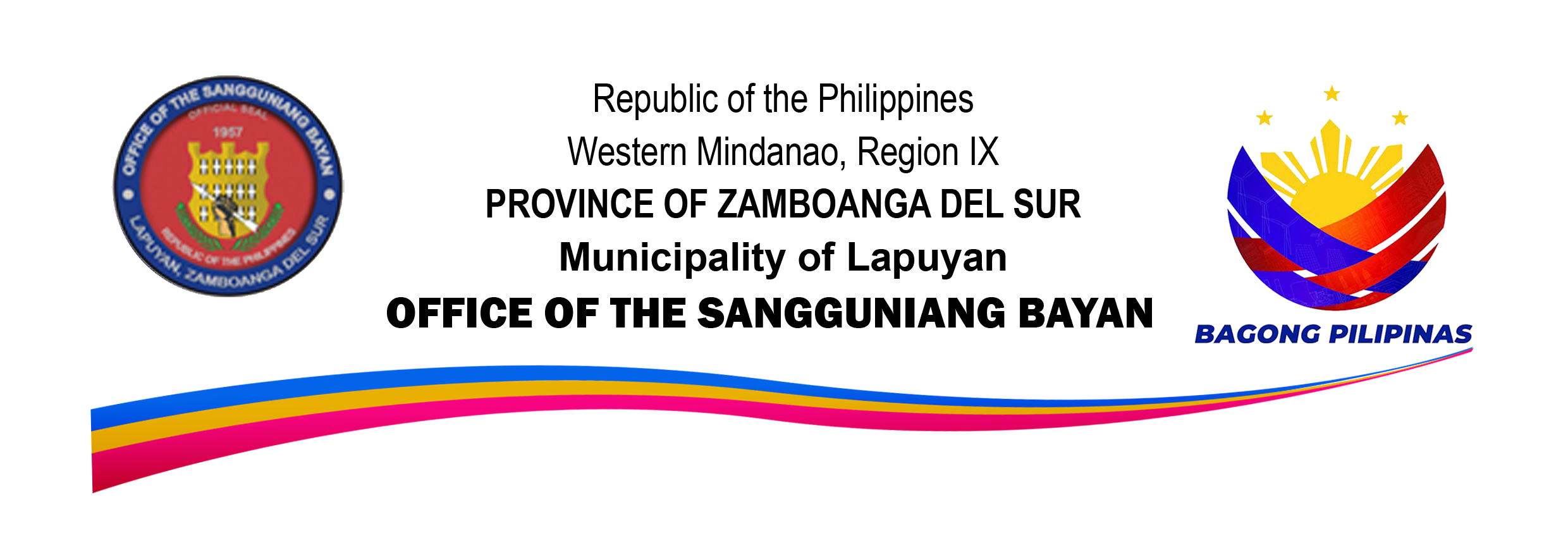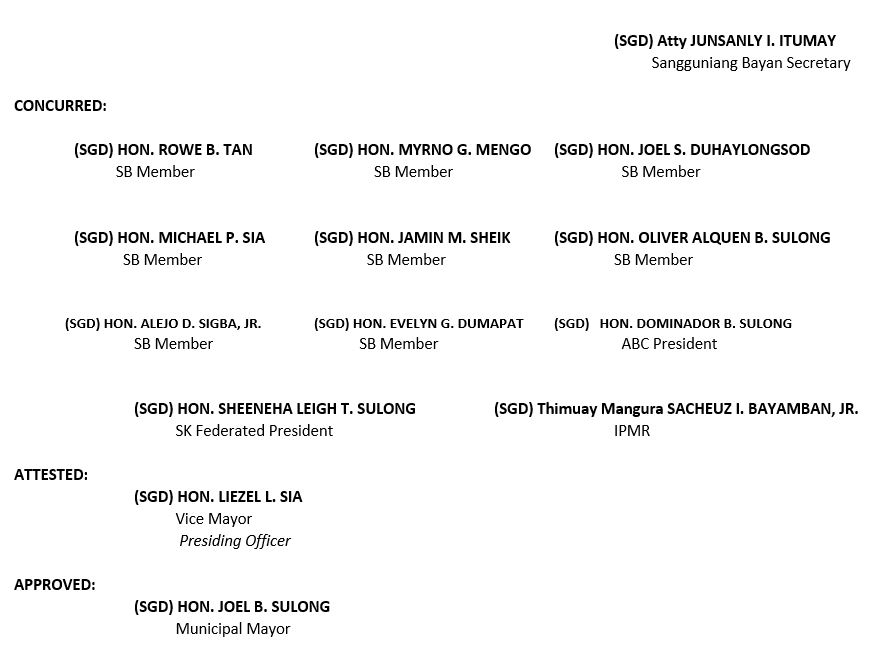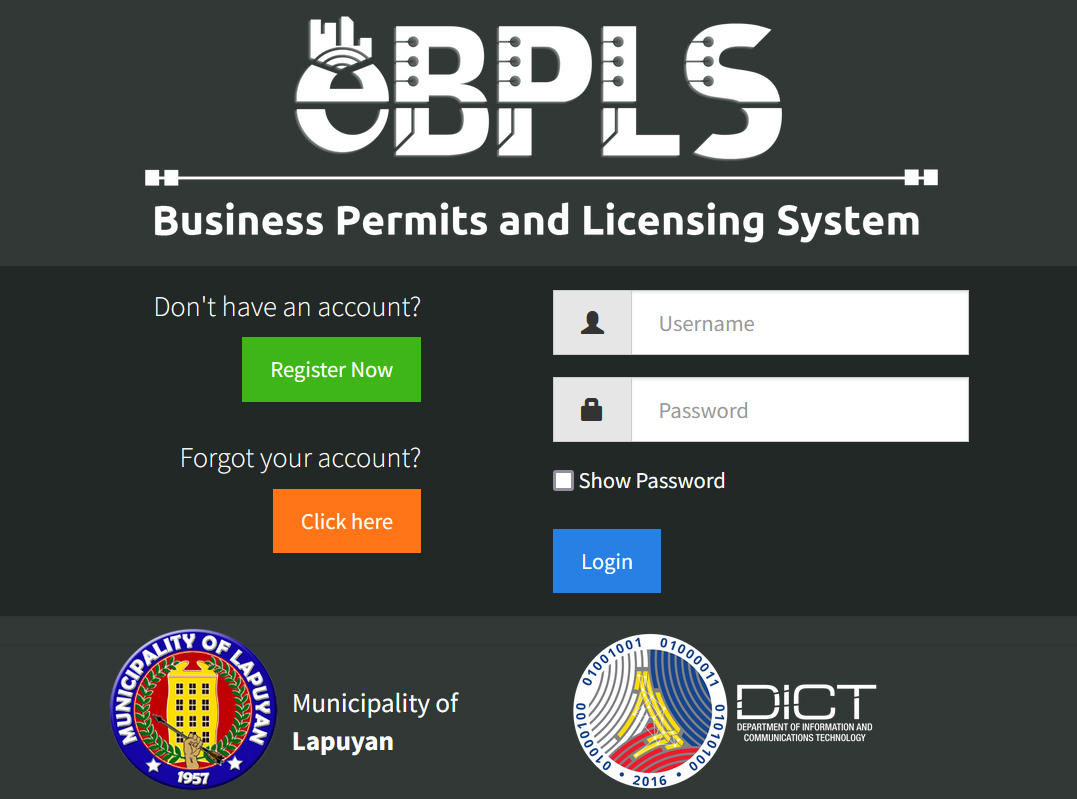
Excerpt from the MINUTES OF THE 87th REGULAR SESSION OF THE SANGGUNIANG BAYAN OF LAPUYAN, PROVINCE OF ZAMBOANGA DEL SUR, HELD AT THE LEGISLATIVE SESSION HALL, ONMAY 6, 2024 AT 9:30 IN THE MORNING
| OFFICERS/MEMBERS | PRESENT | ABSENT | REMARKS |
| HON. LIEZEL L. SIA Vice Mayor | / | ||
| HON. ROWE B. TAN SB Member/Floor Leader | / | ||
| HON. MYRNO MENGO SB Member | / | ||
| HON. JOEL S. DUHAYLONGSOD, SB Member | / | ||
| HON. MICHAEL P. SIA, SB Member | / | ||
| HON. JAMIN M. SHEIK, SB Member | / | ||
| HON. ALEJO D. SIGBA JR., SB Member | / | ||
| HON. OLIVER ALQUEN B. SULONG, SB Member | / | ||
| HON. EVELYN G. DUMAPAT, SB Member | / | ||
| HON. DOMINADOR B. SULONG, ABC President/ Ex-Officio Member | / | ||
| HON. SHEENEHA LEIGH T. SULONG, SK Fed./Ex-Officio Member | / | ||
| HON. SACHEUZ I. BAYAMBAN, JR., IPMR | / |
MUNICIPAL ORDINANCE NO. 09 Series of 2024
AN ORDINANCE INSTITUTIONALIZING A DRUG-FREE WORKPLACE POLICY IN THE LOCAL GOVERNMENT UNIT OF LAPUYAN AND APPROPRIATING FUNDS FOR THE IMPLEMENTATION THEREOF.
WHEREAS, public office is a public thrust, thus employees must at all times be accountable to the people, serve them with utmost degree of responsibility, integrity, transparency, loyalty and efficiency;
WHEREAS, the Civil Service Commission (CSC) issued Resolution No. 101359 prescribing the conduct of mandatory drug test as a requirement for pre-employment to ensure that only those qualified shall be screened and recruited in the government service;
WHEREAS, CSC Resolution No. 1700657 mandates the head of agencies to ensure that drug free workplace policy and program be disseminated to all officials and employees as a condition for retention in the government service and be implemented by means of random drug-testing to prevent and control the risk of dangerous drugs incidence within the workplaces consistent with MC No. 13, s-2017;
WHEREAS, Executive Order No. 66, Series of 2018, issued by President Rodrigo Roa Duterte, calls for the institutionalization of the Philippine Anti-Illegal Drugs Strategy, which outlines the balanced effort of the government to strengthen the campaign against illegal drugs and contribute to international efforts to counter the worldwide illegal drug problem;
WHEREAS, Section 4 of the Executive Order provides that all local government units shall adopt their respective Drug-Free Workplace Programs and conduct authorized drug testing among their respective officials and personnel in accordance with the provisions of Republic Act No. 9165 or the Comprehensive Dangerous Drugs Act of 2002, as amended;
WHEREAS, Regulation No. 13, series of 2018 issued by the Dangerous Drugs Board mandates the creation of drug-free workplace policies in all government offices, especially local government units, including the conduct of authorized drug testing, to ensure that all public officers remain drug free and that the general public be assured of effective and efficient service from the government.
NOW, THEREFORE, BE IT ORDAINED, as it is hereby ordained by the Sangguniang Bayan of Lapuyan, in session duly assembled, that:
SECTION 1. TITLE. This Ordinance shall be known as the “DRUG-FREE WORKPLACE POLICY IN THE MUNICIPALITY OF LAPUYAN, PROVINCE OF ZAMBOANGA DEL SUR.”
SECTION 2. OBJECTIVE. This Ordinance aims to ensure that all public officers and personnel of the municipality of Lapuyan, both elective and appointive, remain drug-free in order to continuously provide effective and efficient service to the people.
SECTION 3. SCOPE. This Ordinance covers all elective and appointive public officers and personnel of the municipality of Lapuyan, including barangay officials and job order personnel.
SECTION 4. DEFINITION OF TERMS. The following terms are defined:
- Authorized Drug Testing – the testing done by any government forensic laboratory or a drug testing laboratory accredited by the Department of Health. It shall employ, among others, two (2) testing methods, the screening test, which will determine the positive test result as well as the type of drug used, and the confirmatory test, which shall confirm a positive screening test.
- Challenge Test – a drug test conducted as a result of a challenged filed by a public officer who tested positive for drug use in a confirmatory test in an authorized drug testing activity.
- Confirmatory Test – an analytical test using a device, tool or equipment with a different chemical or physical principle that is more specific which will validate and confirm the result of the screening test.
- Dangerous Drugs – include those listed in Schedules annexed to the 1961 Single Convention on Narcotic Drugs, as amended by the 1972 Protocol, and in the Schedules annexed to 1971 Single Convention on Psychotropic Substances as enumerated in the attached annex which is an integral part of Republic Act No. 9165 or the Comprehensive Dangerous Drugs Act of 2002, as amended (the “Act”).
- Drug Dependency Examination – refers to the examination conducted by a physician accredited by the DOH to evaluate the extent of drug use of a person and to determine whether heshe is a drug dependent or not, which includes history taking, intake interview, determination of criteria for drug dependency, mental and physical status and the detection of dangerous drugs in the body specimens through laboratory procedures.
- Employees Assistance Program – a program that offers assistance to government officials or employees who have alcohol or drug-related issues and problems that may affect work performance. It shall be jointly implemented by the agency, the employees and employees’ union.
- Mandatory Drug Testing – compulsory submission of a public officer or prospective employee to drug testing as mandated by this Ordinance.
- Random Drug Testing – drug testing where the selection process results in equal probability that any employee from a group of employees will be tested, and without any prior notice of the date and venue.
- Screening Test – a rapid drug test performed to establish potential or presumptive positive result. It refers to immunoassay test to eliminate a “negative” specimen, i.e. one without the presence of dangerous drugs from further consideration and to identify the presumptively positive specimen that requires confirmatory test.
SECTION 5. ESTABLISHMENT OF THE DRUG-FREE WORKPLACE COMMITTEE. There shall be a Drug-Free Workplace Committee which shall ensure the proper implementation and dissemination of this Ordinance. The Committee shall be composed of the following:
- Local Chief Executive
- Head of the Human Resource Management Office (HRMO)
- Head of the Municipal Health Office
- Representative of the Employee’s Union
- Representative of the Municipal Anti – Drug Abuse Council (MADAC)
- ABC Federated President
SECTION 6. ESTABLISHMENT OF AN ASSESSMENT TEAM. There shall be an Assessment Team to be created by the Local Chief Executive which shall assist in the conduct of substance abuse awareness and prevention programs and implement the Employee Assistance Program for personnel who wish to undergo drug use intervention. It shall be composed of personnel with educational and training background on medicine, psychology, social work and human resources administration.
SECTION 7. ASPECTS OF THE DRUG – FREE WORKPLACE POLICY.
- Pre-Employment Drug Testing – Mandatory drug testing shall remain an essential requirement for entry into government service. Any applicant found positive for drug use shall be denied entry to government service.
- Substance Abuse Awareness and Prevention Program – The Assessment Team shall initiate and implement these programs to ensure that personnel are properly informed on the evils of drug use, including its physical, mental, social and legal implications.
- Authorized Drug Testing – The Drug-Free Workplace Committee and the Assessment Team shall implement a random selection procedure in order to determine personnel who shall undergo drug testing.
- Employee Assistance Program – Any personnel, prior to the conduct of Authorized Drug Testing, may seek intervention through the Employee Assistance Program, which shall provide referrals and additional services to the personnel concerned. A drug dependency examination shall be conducted in order to determine the level of Substance Use Disorder and the applicable intervention. This Program shall not apply to personnel who are found positive for drug use after the conduct of confirmatory drug test in an Authorized Drug Testing activity.
SECTION 8. GUIDELINES IN THE CONDUCT OF AUTHORIZED DRUG TESTING
- The Local Chief Executive, in consultation with the Drug-Free Workplace Committee shall determine the frequency and dates for the conduct of an authorized drug testing, the purpose of which is to prevent the entry of dangerous drugs in government offices and use of dangerous drugs among its personnel. The frequency of such testing shall be conducted in random manner. Information reating to frequency and dates relating to drug testing shall be treated with utmost confidentiality.
- Drug testing shall be done by any government forensic laboratory or any of the local Drug testing laboratories accredited and monitored by the Department of Health (DOH).
- Personnel selected to undergo drug testing shall immediately report to the Local Chief Executive, the Drug-Free Workplace Committee, and /or the Assessment Team. Personnel who without any justifiable reason fail to report for drug testing shall be sanctioned in accordance with Section 9 hereof.
- Upon discovery that a urine sample tested positive for use of dangerous drugs after confirmatory testing, the result shall immediately be made known to the Local Chief Executive, who shall notify the public officer/employee/personnel concerned. The latter shall have fifteen (15) days from receipt of notice to challenge the result of the confirmatory test. Using the same specimen, a challenge test shall be conducted by a drug testing laboratory accredited by the DOH. All expenses incurred in the conduct of the challenge test shall be borne by the concerned public officer/employee/personnel
- A positive drug test result from the challenge test is deemed final and the public officer shall be subjected to administrative proceedings. Failure to file a challenge within the prescribed period shall make the positive drug test result from the confirmatory drug test final. The Agency shall then take the appropriate action.
- All drug test results and records shall strictly to be held confidential, and shall be attached to the 201 File of all officials and employees. Only the Local Chief Executive, as the case maybe, and the members of the Assessment Team shall have access to such results.
SECTION 9. SANCTIONS
- Any appointive public officer/employee/personnel who refuses or fails to report without any valid reason, to submit himself/herself to authorized drug testing, or is found positive for drug use after the conduct of a confirmatory test in an authorized drug testing activity shall be subject to administrative offense of Grave Misconduct.
- Any elective public officer who refuses or fails to report without any valid reason, to submit himself/herself to authorized drug testing, or is found positive for drug use after the conduct of a confirmatory test in an authorized drug testing activity shall be subject to disciplinary action for misconduct in office pursuant to Section 60 of the Local Government Code and Article 124 (3) of the Implementing Rules and Regulations of the Local Government Code.
- Any public officer/employee/personnel found to have tampered the result of a drug test, interfered with the conduct of the drug test or in the release of drug test results, or violated rules of confidentiality of records shall be charged with the administrative offense of Grave Misconduct without prejudice to the filing of a case for violation of Section 32, Article II of RA 9165 or the Comprehensive Dangerous Drugs Act of 2002.
- Any public officer/employee/personnel who violated the provisions of Article II of RA 9165 shall be charged with the administrative offense of Grave Misconduct or face disciplinary sanction under Section 60 of the Local Government Code, as the case maybe, without prejudice to the filing of criminal charges under RA 9165 and other relevant laws.
SECTION 10. CONFIDENTIALITY. Any person who, having official custody or access to all data and information relative to the conduct of the authorized drug testing, or anyone who, having gained possession of such data and information, reveals their content to any person not authorized to have access thereto, shall be prosecuted for violation of Section 32, Article II of RA 9165.
SECTION 11. FUNDING. The cost of the drug testing for all the officers/employees/personnel of the Municipal Government of Lapuyan shall be charged to the MADAC fund of the MLGU, while the Barangay Officials shall be charged from their respective BADAC fund and shall form part of its annual budgetary appropriation.
SECTION 12. REPORTING. The Local Chief Executive shall ensure that a copy of this Ordinance shall be communicated to the Dangerous Drugs Board and the Department of the Interior and Local Government for information. Thereafter, the Local Chief Executive shall also report to said agencies the conduct of authorized drug testing and provide data as to the number of persons who were subjected to drug testing, the number of persons found positive for drug use, and the action undertaken by the Local Chief Executive on persons found positive for drug use.
SECTION 13. SEPARABILITY CLAUSE. If any part or provision of this Ordinance is held invalid or unconstitutional, other provisions not affected thereby shall remain in force and effect.
SECTION 14. REPEALING CLAUSE. All previous ordinances and provisions inconsistent with this Ordinance shall be deemed repealed or modified accordingly.
SECTION 15. EFFECTIVITY CLAUSE. This Ordinance shall take effect after its posting and publication in a newspaper of general circulation.
ENACTED and APPROVED: May 6, 2024 at Lapuyan, Zamboanga del Sur.
I HEREBY CERTIFY to the correctness of the foregoing Ordinance which was duly adopted by the Sangguniang Bayan of Lapuyan, Zamboanga del Sur during its 87th Regular Session on May 6, 2024.












